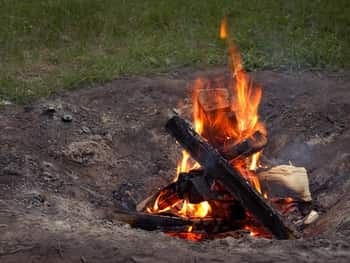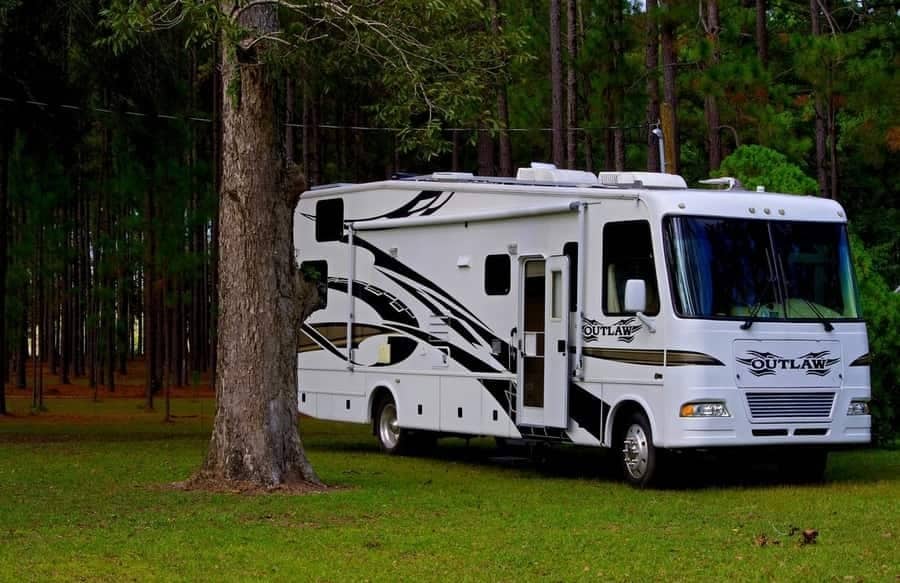Contents
Camping in Your RV: What are Tips on Boondocking Etiquette?
Boondocking is a convenient and easy way to road trip or getaway for the weekend. It involves pulling off the road to stay at free locations, but this does not necessarily mean that you can set up camp just anywhere. There are a few common-sense guidelines to follow when setting off in your RV.
So, what are some tips to follow on boondocking etiquette?
Boondocking etiquette involves being mindful of where you are staying and for how long. This can be as easy as following the signage of the area or can involve a short online search. You will also need to know how to take care of your waste. Boondocking etiquette is in large part about respecting your neighbors and the wildlife or, alternatively, respecting the parking lot and business associated with it.
How can you know where to Boondock?
Private Parking
Avid boondockers know that most Walmart locations let you park overnight for free. There are a variety of different public parking places where you might be able to park your RV.
These include but are not limited to parking lots of stores, apartment complexes and hotels/motels, truck/rest stops, and visitor centers.
As a general rule, check online or ask the manager if you can park overnight. Walmart even has its own app that tells you which locations allow overnight parking. Some places won’t have this information freely available. In these cases, walk into the business and ask for permission.
In most cases, when you are parking on private property, you should only stay one night. You are not meant to treat this location like a campground, so don’t overstay. With this in mind, you will want to avoid pulling out your barbecue or chairs in the parking lot.
Park your RV a fair distance away from the business’ entrance. You’ll be able to keep away from others parked there who are generally just customers.
Give them your business. When possible, get dinner or fuel or what-have-you where you’re boondocking. The business will appreciate it and will likely continue to let people use their parking lot.
Simple gestures to show your appreciation goes a long way with business owners.
In Nature

Boondocking in nature can range from a national park and its trailheads, free campgrounds and roadsides to simply pull off the highway and setting up camp in the desert .
No matter where you end up, the number one step remains the same as with private parking: make sure you are allowed to park overnight. There will likely be signs that tell you you cannot park or how long you can stay.
If there is no signage, boondocking there should be okay. But do your research before heading out so you know the guidelines for that national park.
You’ll also want to take note of what stay limits are in place. It is important not to overstay or restrictions could be tightened, ruining the fun for everyone. You can stay at most campsites or roadsides across the United States for a maximum of 2 weeks. After this time, you’ll have to move on to a location at least 25 miles away.
How can you interact with your Boondocking Neighbors?
Distance
In situations where you find the campsite or road has other campers/RVs, you should give your neighbors enough space. If you can, park and set up camp as far as possible to give your neighbors their privacy and keep your own.
If the location is crowded, there is not much you can do about it, but just be mindful. Otherwise, you can keep driving on and see if you can find something better.
Lights
Turn off the lights of your RV at night. Most boondockers want to be immersed in nature. If you’re parked in a parking lot, you also don’t want to attract any attention to your RV.
Noise and Generator
Noise travels easily in nature and when there is not much else around (in parking lots—so keep your volume to a minimum if you can.
Boondocking etiquette states that you should not start your generator too early in the morning. Any time after 8 am is a reasonable time to start it up. Keep in mind that your neighbors are likely still sleeping.
You should also know that you should not run your generator or your loud music after around 10 pm because some people go to bed early.
Dogs
Keeping a respectful distance from your neighbors also includes keeping your dog at a distance from them. While your dog might be incredibly friendly, other boondockers might not want to be disturbed.
You should remember that other dogs might not be friendly either. Do not let your dog wander without a leash if it’s not trained to remain close to you.
Say Hello!
Give your neighbor a wave and a hello. Some boondockers might be chattier than others. Whatever the case, being polite and making your presence known is likely to be appreciated.
How can you interact with Nature while Boondocking?
Leave No Trace
Whatever waste you create has to be taken with you. For parking lots, you might find bins you can use but national parks and desert roadsides will not. You will have to carry your waste will you until you can dispose of it appropriately.
Tank Dump Station
Similar to the above point, you cannot dump your dirty water anywhere. Do your research on where you will be able to dump your tank along your route. There are specific stations where this can be done.
Use Existing Roads/Campsites
Boondocking etiquette is using only existing roads and campsites. You will be able to tell where these are: they will very apparently be “used”. Do not simply venture off into new territory as you will be disrupting the wildlife there.
This point is also a matter of safety. Scout the road beforehand, even if it is an existing road. This exercise will tell you if your RV fits, if there is anywhere to park, and if it will be able to turn around.
Campfires

Assuming you are allowed to start a fire, make sure to put it out. Take a look online to see if the national park allows campfires and, if so if you’re allowed to use dead branches.
If not you might have to bring your own firewood places where branch collecting is prohibited.
An easy way to practice boondocking etiquette is by asking questions that put you in the place of the other person, be it a business owner or neighbor.
If it was your business, how would you like the boondocker to treat you and your place of business?
Putting yourself in the place of your neighbor is easy because you’re essentially both looking for the same thing. You want to be able to relax in privacy and comfort, with the least disturbances possible.
As for taking care of wildlife, doing so ensures that you and everyone else will be able to boondock for a long time to come.
For a first-hand detailed account of boondocking etiquette, you can take a look at this video for more:
